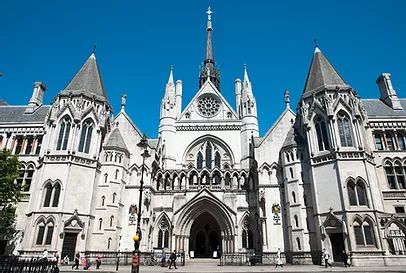
Law Fact - Immigration
According to the Home Office, net migration numbers are primarily driven by Ukrainian refugees, Hong Kong BN(O) holders, and international students. These figures have fallen since reaching their peak in 2022.

Law Fact - Conveyancing
A leaseholder owns the property for a set period. After the period ends, ownership of the property returns to the freeholder. A freeholder owns the property and the land it stands on and is responsible for all costs relating to the property, including maintenance for communal areas.
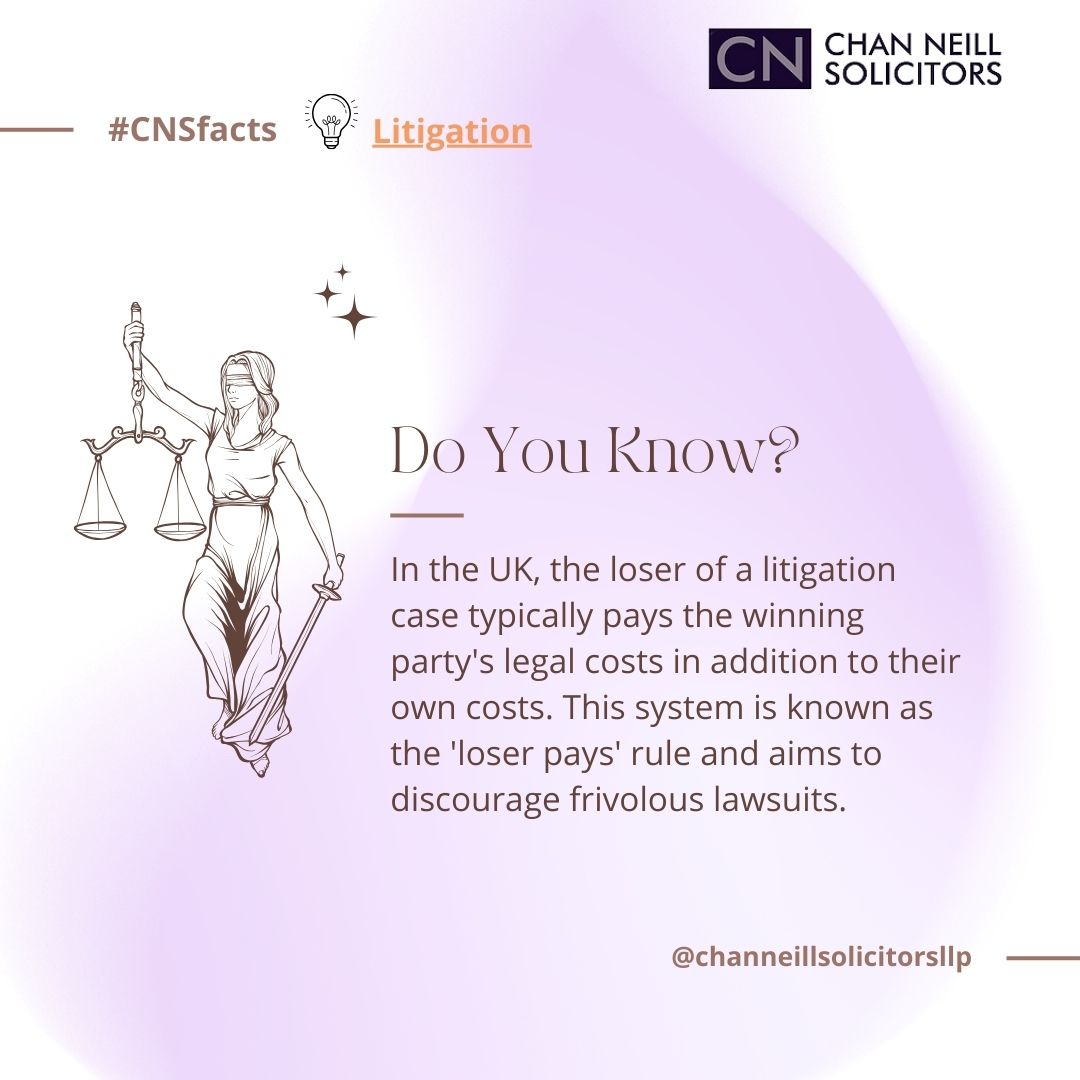
Law Fact - Litigation

Law Fact - Commercial and Corporate
Limited liability legislation allowed shareholders in limited companies to limit their financial liability to the amount they had invested in the company. Prior to this legislation, shareholders could be held personally liable for the company’s debts and obligations.
Salomon v. Salomon & Co. Ltd [1897] is a landmark case in UK company law that further established and clarified the principle of limited liability. In this case, the House of Lords ruled that Mr. Salomon was not personally liable for the company’s debts beyond the amount he had invested as a shareholder. The court upheld the company’s “separate legal personality” and ruled that Mr. Salomon was not personally liable for the company’s debts beyond the amount he had invested as a shareholder.
The Limited Liability Act of 1855 and the Salomon case established a legal framework by protecting shareholders from personal financial risk while promoting the growth and expansion of businesses. The principle of limited liability is now further solidified and modernised by the Companies Act 2006, which serves as the current legal framework governing company law in the UK.
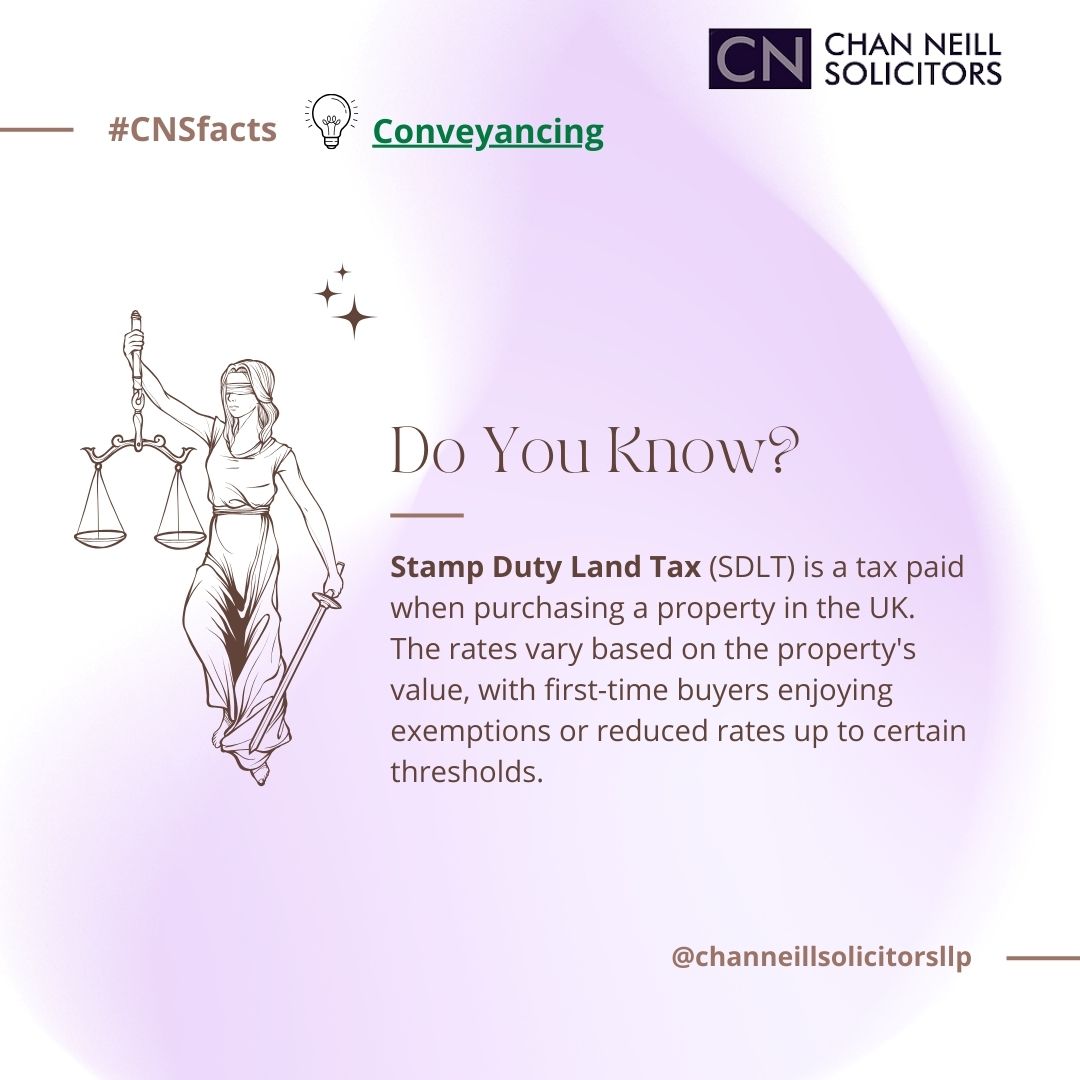
Law Fact - Conveyancing
In the UK, SDLT (Stamp Duty Land Tax) is levied on property or land purchases, with different rates for residential and non-residential properties.
The tax is calculated based on the chargeable consideration, which encompasses the property price along with any additional costs like fixtures and fittings. Payment is typically due within 14 days of completion, with penalties for late payment. While SDLT generally applies to properties over a certain threshold (£250,000 for residential properties), there are variations for first-time buyers, such as exemptions on the first portion of the purchase price.
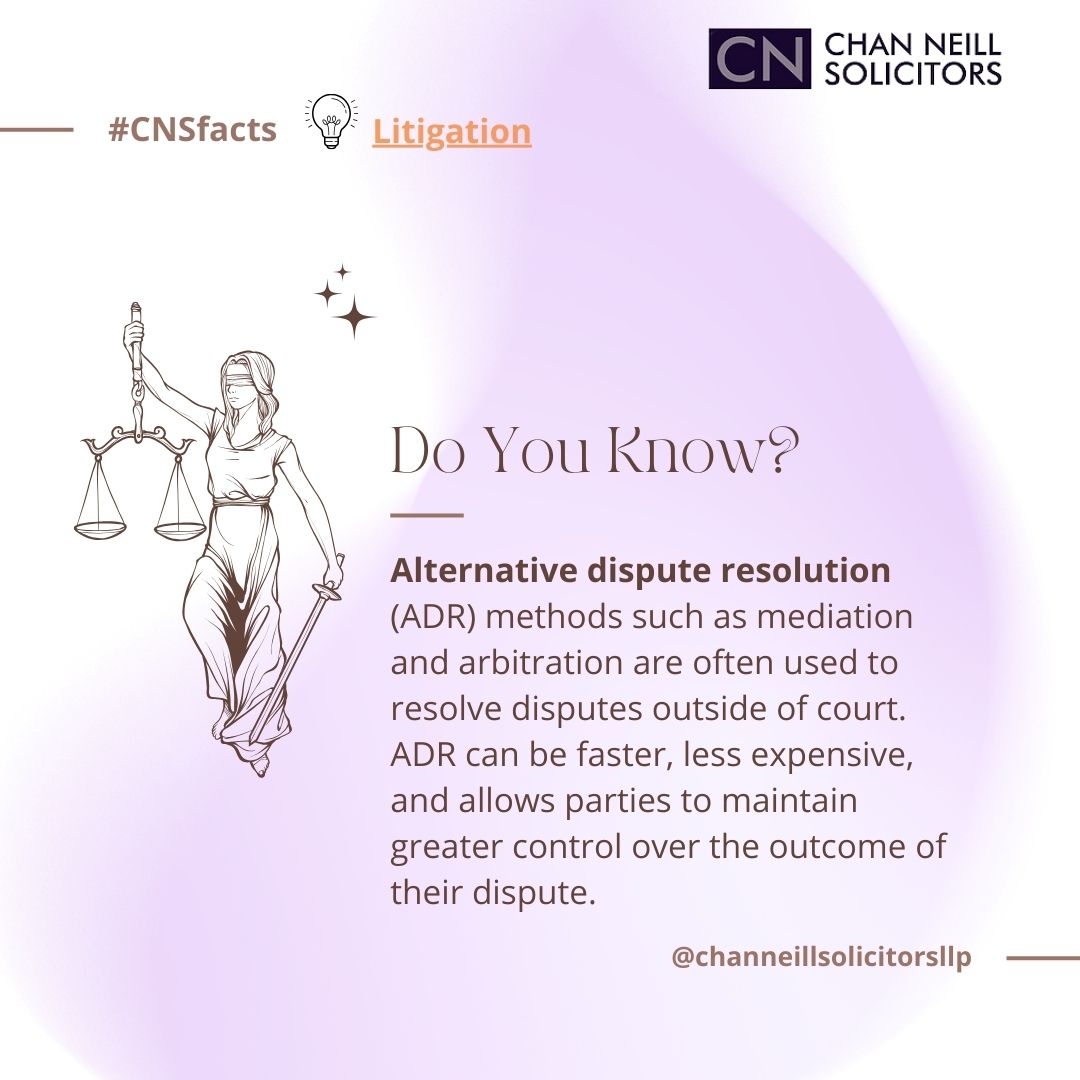
Law Fact - Litigation
In the UK, litigation laws allowed for parties to have access to Alternative Dispute Resolution (ADR) methods such as mediation, arbitration, and negotiation. Unlike traditional litigation, ADR prioritises collaboration and offers a streamlined approach to resolving conflicts, often leading to quicker and more cost-effective resolutions. Its flexibility allows for tailored solutions, empowering parties with greater control over the dispute’s outcome while alleviating financial burdens associated with litigation. Despite the vital role litigation plays in the legal system, ADR stands as an efficient alternative, promoting timely, cost-effective, and mutually satisfactory resolutions, thereby complementing traditional legal processes seamlessly.
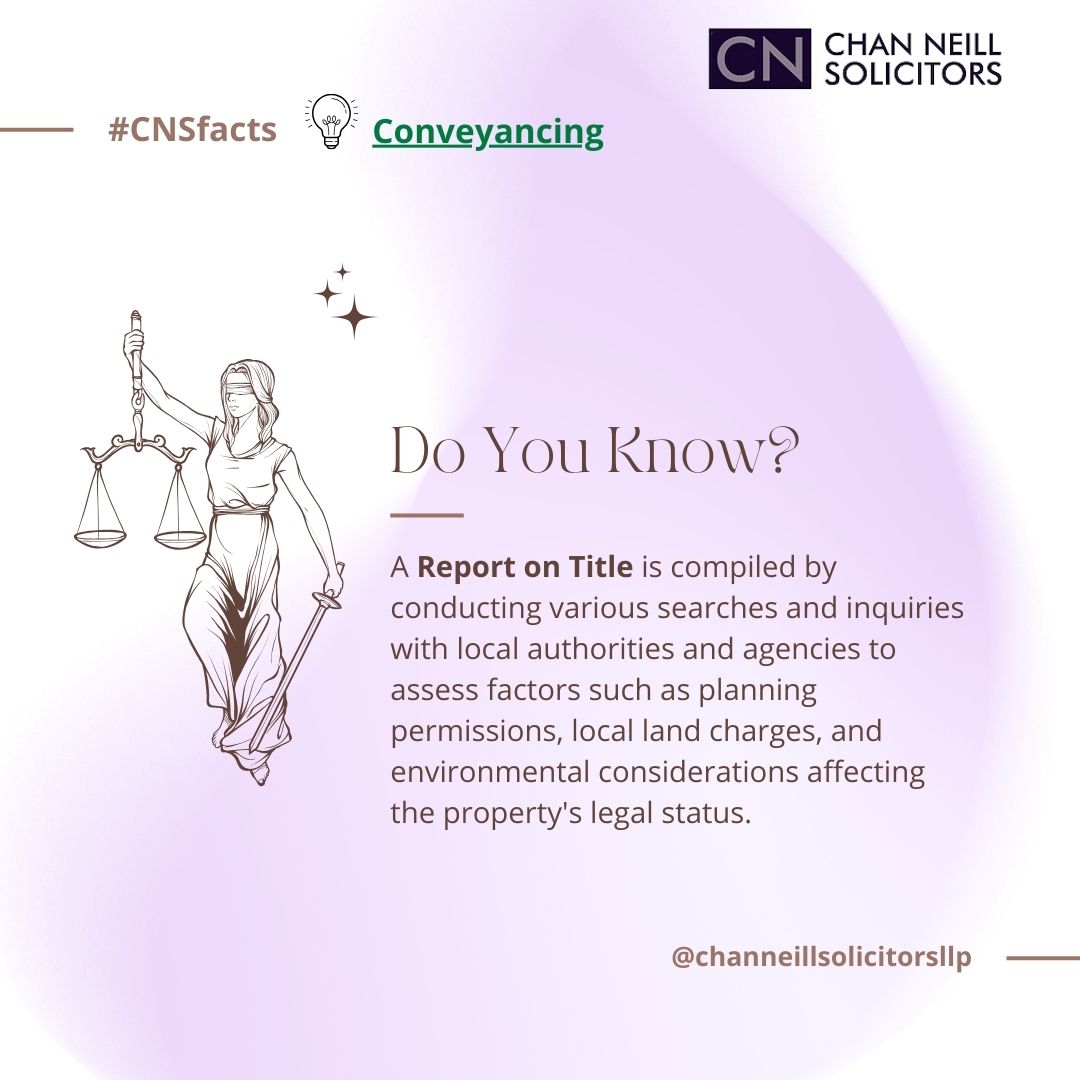
Law Fact - Conveyancing
A Report on Title is a detailed document prepared by the buyer’s legal representatives during the property conveyancing process. It involves extensive research and analysis of the property’s legal status, including ownership history, encumbrances, and any potential legal issues that may affect the property. The report aims to provide buyers with a comprehensive understanding of the property’s legal standing, enabling them to make informed decisions. It is crucial for ensuring transparency in property transactions and protecting the interests of all parties involved. The report must be completed before funds are released to the lender, ensuring the transaction’s integrity

Law Fact - Commercial
Directors of UK companies owe fiduciary duties to the company and its shareholders, including duties of loyalty, care, and good faith. Codified in the Companies Act 2006, these duties require directors to act bona fide in the best interests of the company, avoid conflicts of interest, and exercise reasonable skill and diligence.
As fiduciaries, directors are seen as trustees and agents of the company, acting with trust and loyalty. Section 170 of the Act provides an explanatory framework for these duties, while sections 171–177 list specific obligations and sections 178 address the civil consequences of breaches.
These duties ensure directors manage the company’s business effectively, and breaches can lead to remedies such as compensation or disqualification.



